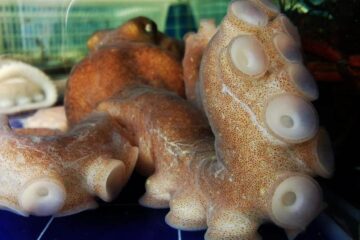An aspirin a day keeps Staphylococcus aureus away

In the July 15 issue of The Journal of Clinical Investigation, Ambrose Cheung and colleagues at Dartmouth School of Medicine in New Hampshire, USA, report that salicylic acid (SAL), the major metabolite of aspirin, downregulates two Staphylococcus aureus genes key to this organism’s pathogenesis.
Over 100 years have passed since S. aureus was first described as the organism responsible for causing sepsis and abscesses. Today it remains a leading cause of serious infections such as endocarditis, pneumonia, and septicemia and requires intensive antibiotic therapy, which is often unsuccessful due to the rise of antibiotic resistant strains.
Aspirin has previously been shown to reduce the virulence of S. aureus in models of endocarditis. In an earlier study, this same group found that while administration of aspirin or its metabolite, SAL, was capable of reducing the ability of S. aureus to attach to host cells, the effect was significantly enhanced following SAL administration.
In this issue of the JCI, Cheung and colleagues extend these earlier findings and report that treatment with SAL induced activation of the S. aureus stress response gene sigB, resulting in downregulation of regulons sarA and agr, which control the expression of the genes encoding a-hemolysin and fibronectin. This downregulation resulted in decreased ability of the bacteria to adhere to host cells, and reduced S. aureus toxin-mediated hemolysis and thrombolysis of host cells.
“The establishing of a straightforward, unequivocal strategy to downregulate staphylococcal virulence using a cheap, simple, relatively non-toxic, resorbable compound such as SAL may be seen as major progress in the development of intervening strategies in addition to antimicrobial drugs” stated Professor Mathias Herrmann, Director of the Department of Bacteriology and Hygiene at the University of Saarland, Germany in his accompanying commentary. The report is the first description of aspirin-mediated genetic effects against S. aureus and represents an exciting new prospect for this widely used and established drug.
Contact:
Ambrose L. Cheung
Dartmouth Medical School, Hanover, New Hampshire, USA.
Phone: 603-650-1310
Fax: 603-650-1362
Email: ambrose.cheung@dartmouth.edu
Mathias Herrmann
University of Saarland Hospital, Homburg/Saar, Germany.
Phone: 49-6841-162-3900
Fax: 49-6841-162-3985
Email: mathias.herrmann@uniklinik-saarland.de
Media Contact
More Information:
http://www.jci.orgAll latest news from the category: Health and Medicine
This subject area encompasses research and studies in the field of human medicine.
Among the wide-ranging list of topics covered here are anesthesiology, anatomy, surgery, human genetics, hygiene and environmental medicine, internal medicine, neurology, pharmacology, physiology, urology and dental medicine.
Newest articles

Technical Trials for Easing the (Cosmological) Tension
A new study sorts through models attempting to solve one of the major challenges of contemporary cosmic science, the measurement of its expansion. Thanks to the dizzying growth of cosmic…

Octopus inspires new suction mechanism for robots
A new robotic suction cup which can grasp rough, curved and heavy stone, has been developed by scientists at the University of Bristol. The team, based at Bristol Robotics Laboratory,…

Peptides on Interstellar Ice
A research team led by Dr Serge Krasnokutski from the Astrophysics Laboratory at the Max Planck Institute for Astronomy at the University of Jena had already demonstrated that simple peptides…





















